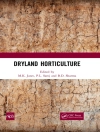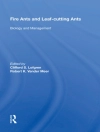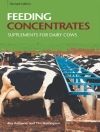This book will collate, review and synthesize information on how Organic Agriculture (OA) practices affect and are affected by climate change, in comparison to the more widely used conventional agricultural practices. Pros and cons of OA practices will be discussed separately for croplands, pasture lands, mixed livestock cropping systems, vegetable fields, fruit and tree orchards, and vineyards. The book concludes with an overview on how conventional and OA practices can be prudently and discriminately combined to identify and adopt climate-resilient agro-ecosystems under site-specific conditions.
Tabella dei contenuti
Circa l’autore
Klaus Lorenz, Ph.D., is Senior Research Associate and Assistant Director of the CFAES Rattan Lal Center for Carbon Management and Sequestration at The Ohio State University (OSU), Columbus, Ohio, USA. He is an experienced soil scientist with research interests in soil organic carbon, and management of soil for climate change adaptation and mitigation. He received a Diploma in Biology from University of Freiburg, Germany (1997), and a Ph.D. in Agricultural Sciences from University of Hohenheim, Germany (2001). He served as Chief Soil Scientist at the Institute for Advanced Sustainability Studies e.V. in Potsdam, Germany (2011-2014), and as Postdoctoral Researcher/Research Scientist at OSU (2004 to date). He has written books about carbon sequestration in forest and in agricultural ecosystems, soil organic carbon sequestration in terrestrial biomes of the United State, and co-edited books on recarbonization of the biosphere, and on ecosystem services and carbon sequestration in the biosphere.
Rattan Lal, Ph.D., is a Distinguished University Professor of Soil Science and Director of the CFAES Rattan Lal Center for Carbon Management and Sequestration at The Ohio State University (OSU), Columbus, Ohio, USA, Adjunct Professor of University of Iceland and the Indian Agricultural Research Institute, India. He received a B.S. from Punjab Agricultural University, Ludhiana, India (1963); M.S. from Indian Agricultural Research Institute, ^ 1000 journal articles and > 550 book chapters, has written and edited/co-edited > 100 books.












